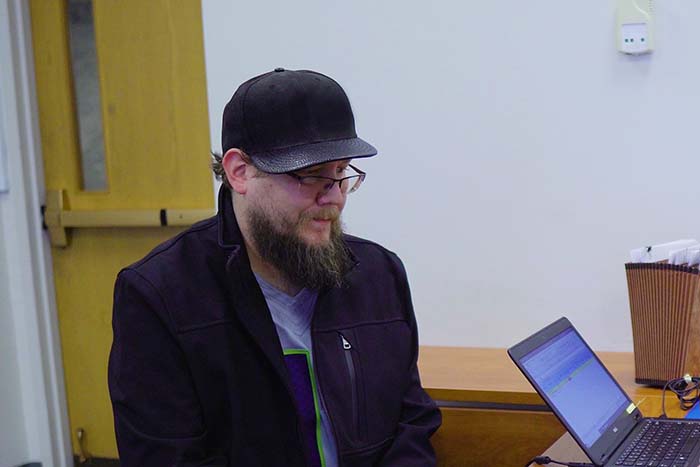On the Brink of Homelessness
Note: Two days after starting at United Way of King County, new employee Cesar Canizales went on a video crew to shoot some footage at Home Base inside the King County Courthouse. This is his first impression of the work we do.
Anders has been distressed over the last few months, wondering if he and his family would be evicted and thrown out of their current home in south Seattle.
The disabled father of one fell behind in his rent after an unexpected car repair bill. One thing led to another, fees and fines began to mount up until a couple of weeks ago when he was served an eviction notice.
Anders is with his wife and 5-year-old child at the office of Home Base, a United Way of King County program housed in the King County Courthouse that provides people in Anders’ situation with one-time emergency funds to catch up with rent and pro bono lawyers to help navigate the process that will allow them to stay at their homes.
Today, there are a dozen or so individuals, couples and families who are going through the same situation as Anders. They are only a fraction of King County residents who are one emergency expense away from running into financial trouble, which could get them evicted and land them on the street in a flash, a statistic I’ve been reading about for the past year.
The stress is visible in his face, his tone despondent, as he describes the hopelessness that comes with the prospect of his entire family ending up without a home.
But it is one thing to see the statistics in a study, or read about people who do all the right things, work hard and try to provide for their families, only to fall behind in rent, unable to catch up. But it is quite another experience to see what people like Anders are going through. The stress is visible in his face, his tone despondent, as he describes the hopelessness that comes with the prospect of his entire family ending up without a home, or living in a car.
“I have anxiety and stress,” Anders said. “I’m scared not knowing if my family would lose our home, worried about my daughter.”
Anders said he went to several charities over the summer to seek help, but they weren’t able to help him because of a lack of funds. That’s when he turned to Home Base, which he had heard about from some friends.
Luckily, Soledad Strubhar, an eviction prevention coordinator, said Anders and his family qualify for the Home Base program, which has kept more than 400 families, or roughly 1,200 people, in their homes since the program was launched in March.
“I felt a huge relief,” Anders said after Strubhar told him the good news. “I feel like there’s a light at the end of the tunnel for my family to pull out of this.”
To qualify for the program, applicants need to prove that they will be able to pay rent in the future. Once they qualify, Home Base works with the landlord’s lawyers to hammer out an agreement that will let the tenant remain in their home.
Eviction is one of the leading causes of homelessness in the region, and Strubhar said many people go to Home Base to seek relief after experiencing financial setbacks, such as unexpected medical expenses or paying for a parent’s funeral, and in many cases due to domestic violence issues.
Strubhar said her favorite part of her job is meeting families and being able to tell them that their tenancy will be reinstated, so they can go home.
“We have an impact on their lives,” Strubhar said while fighting back tears. “We’re preventing trauma, additional trauma for the kids and families.”
Anders said he’s glad programs like Home Base exist to help people who are dealing with situations similar to his.
“I think it’s immensely important to have more things like this because there are a lot of people on the brink of homelessness,” Anders said. “I see it all the time, and I’m experiencing it. It’s about family, it’s not the way they try to depict homelessness in a negative light.”
Eviction Prevention Fights Homelessness in Seattle
Eviction is a leading cause of homelessness, and one of the most effective ways to address homelessness is to prevent it from happening in the first place.
According to the latest data, more than half of eviction filings were against people of color, and African Americans are 4.5 times more likely to get evicted from their homes. These groups are less likely to have benefited from multigenerational inherited wealth, they may have experienced displacement due to gentrification and are more likely to experience employment and housing discrimination.
Home Base is an eviction prevention program that, though less than a year since its launch as a program, has already provided legal help to keep more than 1,200 people in their homes.
The program provides a mix of one-time emergency funds, volunteer legal representation and the support of a social worker to connect people like Anders to other services and develop a long-term plan.





Comments